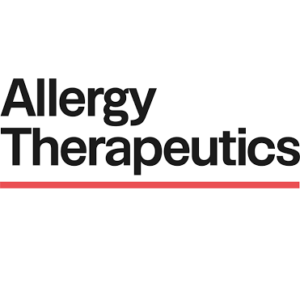Manuel Llobet, Chief Executive Officer of Allergy Therapeutics LON:AGY, said: “The results of the PQBirch204 trial are very encouraging and they reaffirm the potential of our Pollinex platform to treat the underlying cause of allergic rhinitis. Approximately 6% of the population in Europe alone is allergic to birch pollen and there continues to be a need for a safe and well tolerated effective treatment for this significant health issue. Pollinex is the only ultra-short course aluminium-free treatment in the market and its convenience for patients is driving our market penetration in all our European markets.
“This study is a significant milestone in our route to Marketing Authorisation and keeps us on track to commence the Phase III study in early 2017.”
Allergy Therapeutics LON:AGY has told DirectorsTalk about positive top-line results from the PQBirch204 Phase II study for birch-induced seasonal allergic rhinitis
-- Primary endpoint met -- Statistically significant dose-response relationship (p<0.01) -- All dosing regimens were safe and well tolerated -- Adherence was greater than 90%
Allergy Therapeutics, (AIM:AGY), the fully integrated specialty pharmaceutical company specialising in allergy vaccines, today announces positive top-line results from the Company’s PQBirch204 Phase II study, a multi-centre, double-blind, placebo-controlled study designed to explore the safety and response of different cumulative doses of Birch Modified Allergen Tyrosine adsorbed and MPL(R) (POLLINEX(R) Quattro Birch) for birch pollen induced seasonal allergic rhinitis.
The study randomised 371 patients into six cumulative dosing regimens plus a placebo, evaluating the change in Total Symptom Score (TSS) following a conjunctival provocation test (CPT) with the objective to achieve a dose recommended for Phase III development.
Results summary of the PQBirch 204 Phase II study programme
— The primary endpoint, to demonstrate a statistically significant (p<0.01) dose-response for the 5000 standardised units (SU) to 27300 SU, was met. This enables prediction of the dose to enter Phase III development
— The study demonstrated a statistically significant (p<0.01) dose-response for the 5000 standardised units (SU) to 27300SU dose range studied
— The dose-response closely followed and extended the findings of the previous dose-response study (PQBirch203), which studied doses from 600SU to 13600SU
— PQBirch continues to be well-tolerated and no safety concerns were reported in any treatment arm. There was no significant relationship between any adverse drug reaction exhibited and the respective dosage of allergoid
— Overall adherence to the dosing regimens was approximately 94% with no relevant differences between treatment arms.


